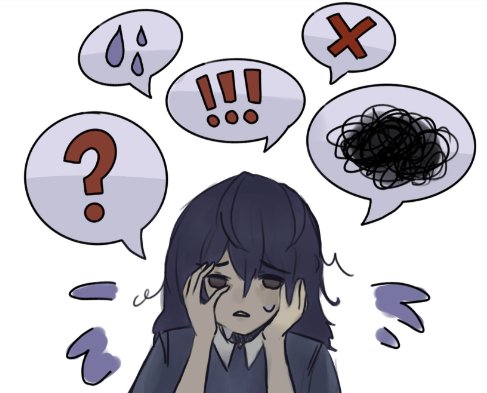How we handle boredom matters, researchers say

For many students, boredom is accompanied by various other negative emotions.
January 31, 2023
Boredom, the “mind-numbing” feeling that surfaces when our brain craves stimulation but isn’t able to get it, can be uncomfortable. It’s an ordinary and seemingly mundane experience, yet the ways in which we respond to it may have unexpected consequences.
When students find their classes dull, they habitually occupy themselves with side activities like using personal devices and working on assignments for other classes. “As bad as it sounds,” senior Aryana Weekes said, “I [still] go on my phone; I scroll on TikTok and social media.”
Our instinct is to fight boredom immediately by reaching for our phones. When we want to be engaged but feel we have nothing to do, our phones offer instant gratification. But this further erodes our ability to concentrate and reinforces our addiction.
“In an environment where we are constantly overstimulated, it’s hard to find ways to engage when the noise shuts down,” Dr. John Eastwood, a professor of psychology at York University, told the New York Times. The daily slew of digital notifications we receive has bred a desire for distraction; our brains have learned to want to absorb these bits of information that bombard us in the form of text messages, social media activity and emails.
During quarantine, when we functioned almost entirely online and were constantly inundated with digital information, we built a habit of escaping boredom by diverting our attention to short-form online content. As a result, concentration has deteriorated in the past few years.
“People may have a harder time remaining engaged…as a result of the pandemic,” counseling psychologist Rachel Cavallaro told USA Today. “It seems that most people are consuming the majority of their entertainment in 10-to-30 second bits, which can make it a challenge to remain focused for an extended period of time.”
Teens are prone to experiencing boredom because a lot of what they do—especially for the sake of school and their futures—feels involuntary and beyond their control. “There’s a lot of pressure to be constantly doing stuff to put on college applications instead of just enjoying life,” freshman Chloe Kennedy said.
In our “busyness” culture, many students believe they should always be productive and never bored or unoccupied. “When I’m just sitting around doing nothing, I feel like I could be doing something—even if I actually have nothing to do,” Weekes said.
Despite this aversion to idleness, experiencing boredom at least once in a while is actually beneficial. According to productivity researcher Chris Bailey, people should give themselves time to do nothing and let their mind wander. “This is when our best ideas and plans come to us,” he said in a talk at Google.
In that sense, boredom isn’t necessarily something to be dreaded; idle minds can give way to meaningful ideas. “When I’m bored, I think about stuff I can write,” senior Melody Qian said. “I’ve had a lot of short stories and poems that sprung from periods where I had nothing to do and just brainstormed ideas.”
A healthy way to handle boredom is to analyze the root causes of it and adjust accordingly: if a task is too easy, try to add complexity to it and ask more questions; if it’s too hard, break it up into smaller chunks or get support. Research also suggests that if an activity—math class, for example—seems meaningless, stepping back to consider how it can further larger goals (e.g., by offering problem-solving experience or building skills that are useful in a future career) can facilitate engagement in school.
It takes self-discipline to resist reaching for our phones to slake boredom, but learning to do so can open opportunities to take meaningful action and make positive change.


